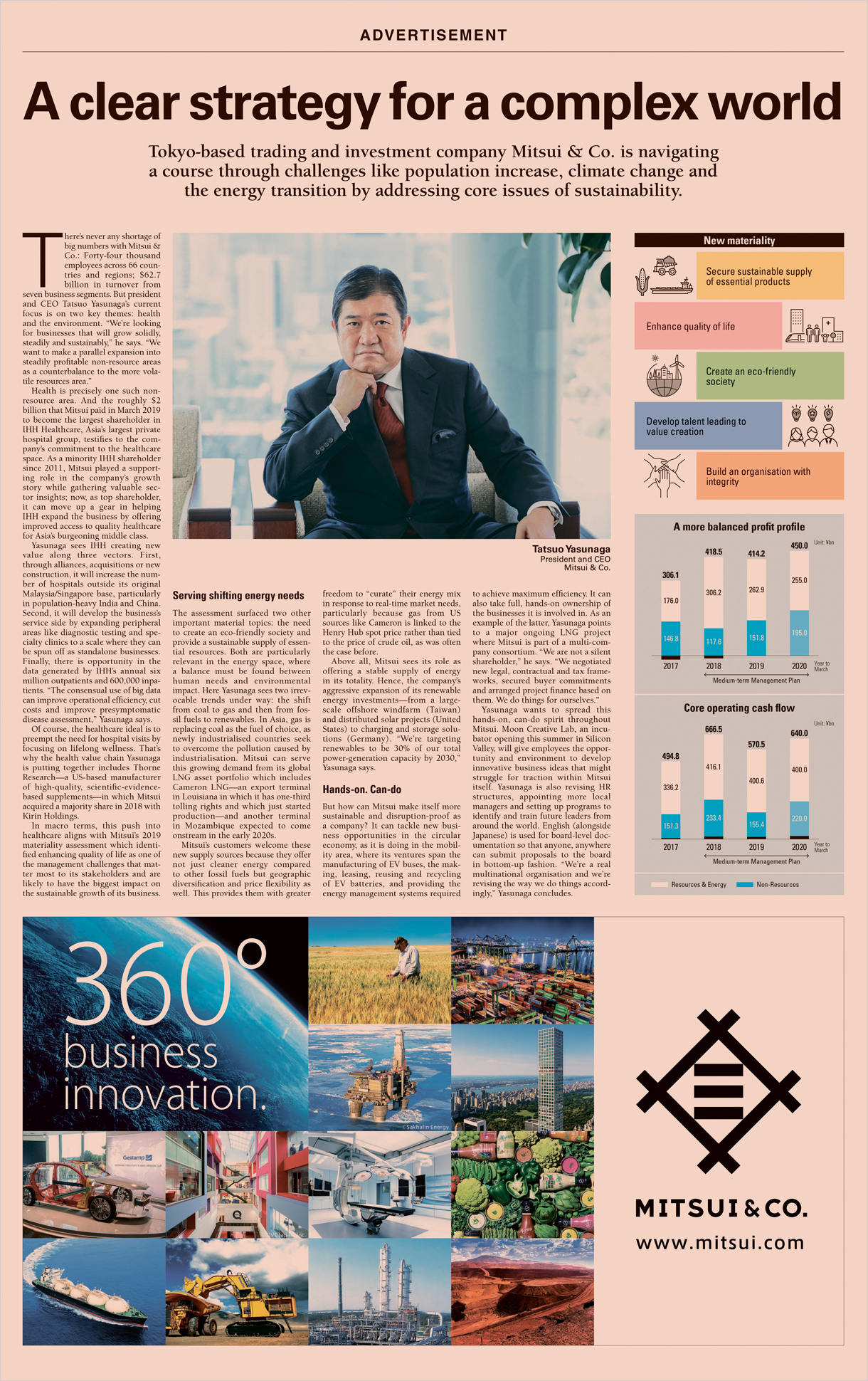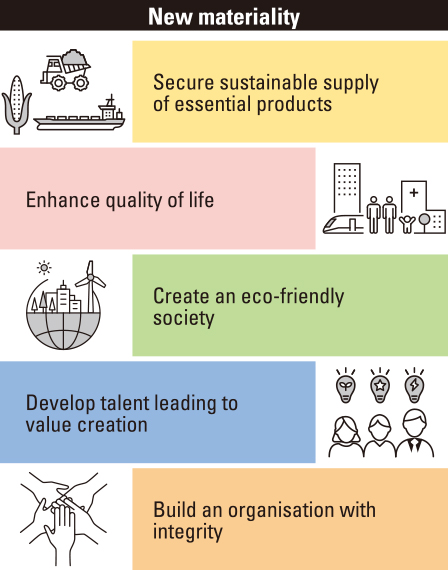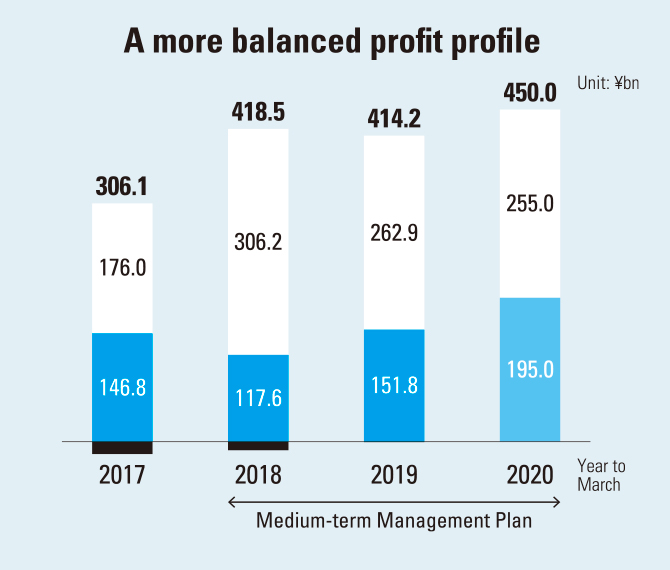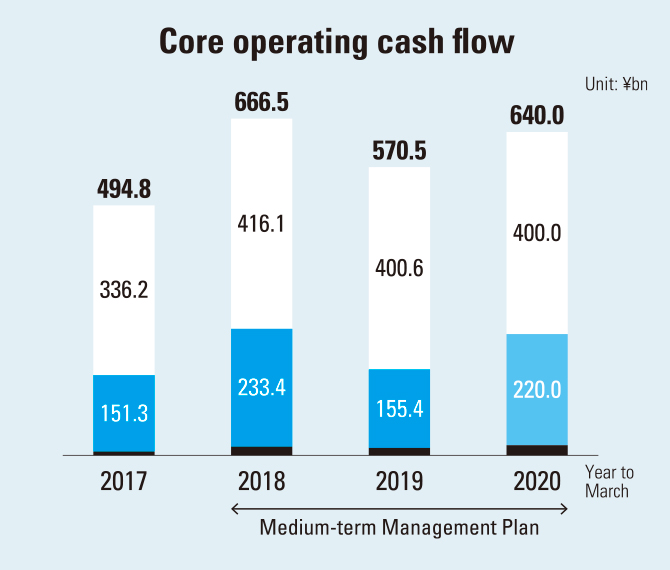
Tokyo-based trading and investment company Mitsui & Co. is navigating a course through challenges like population increase, climate change and the energy transition by addressing core issues of sustainability.
There's never any shortage of big numbers with Mitsui & Co.: Forty-four thousand employees across 66 countries and regions; $62.7 billion in turnover from seven business segments. But president and CEO Tatsuo Yasunaga's current focus is on two key themes: health and the environment. "We're looking for businesses that will grow solidly, steadily and sustainably," he says. "We want to make a parallel expansion into steadily profitable non-resource areas as a counterbalance to the more volatile resources area."
Health is precisely one such non-resource area. And the roughly $2 billion that Mitsui paid in March 2019 to become the largest shareholder in IHH Healthcare, Asia's largest private hospital group, testifies to the company's commitment to the healthcare space. As a minority IHH shareholder since 2011, Mitsui played a supporting role in the company's growth story while gathering valuable sector insights; now, as top shareholder, it can move up a gear in helping IHH expand the business by offering improved access to quality healthcare for Asia's burgeoning middle class.
Yasunaga sees IHH creating new value along three vectors. First, through alliances, acquisitions or new construction it will increase the number of hospitals outside its original Malaysia/Singapore base, particularly in population-heavy India and China. Second, it will develop the business's service side by expanding peripheral areas like diagnostic testing and specialty clinics to a scale where they can be spun off as standalone businesses. Finally, there is opportunity in the data generated by IHH's annual six million outpatients and 600,000 inpatients. "The consensual use of big data can improve operational efficiency, cut costs and improve presymptomatic disease assessment," Yasunaga says.
Of course, the healthcare ideal is to preempt the need for hospital visits by focusing on lifelong wellness. That's why the health value chain Yasunaga is putting together includes Thorne Research—a US-based manufacturer of high-quality, scientific-evidence-based supplements—in which Mitsui acquired a majority share in 2018 with Kirin Holdings.
In macro terms, this push into healthcare aligns with Mitsui's 2019 materiality assessment which identified enhancing quality of life as one of the management challenges that matter most to its stakeholders and are likely to have the biggest impact on the sustainable growth of its business.
Serving shifting energy needs
The assessment surfaced two other important material topics: the need to create an eco-friendly society and provide a sustainable supply of essential resources. Both are particularly relevant in the energy space, where a balance must be found between human needs and environmental impact. Here Yasunaga sees two irrevocable trends under way: the shift from coal to gas and then from fossil fuels to renewables. In Asia, gas is replacing coal as the fuel of choice as newly industrialised countries seek to overcome the pollution caused by industrialisation. Mitsui can serve this growing demand from its global LNG asset portfolio which includes Cameron LNG—an export terminal in Louisiana in which it has one-third tolling rights and which just started production—and another terminal in Mozambique expected to come onstream in the early 2020s.
Mitsui's customers welcome these new supply sources because they offer not just cleaner energy compared to other fossil fuels but geographic diversification and price flexibility as well. This provides them with greater freedom to "curate" their energy mix in response to real-time market needs, particularly because gas from US sources like Cameron is linked to the Henry Hub spot price rather than tied to the price of crude oil, as was often the case before.
Above all, Mitsui sees its role as offering a stable supply of energy in its totality. Hence, the company's aggressive expansion of its renewable energy investments—from a large-scale offshore windfarm (Taiwan) and distributed solar projects (United States) to charging and storage solutions (Germany). "We're targeting renewables to be 30% of our total power-generation capacity by 2030," Yasunaga says.
Hands-on. Can-do
But how can Mitsui make itself more sustainable and disruption-proof as a company? It can tackle new business opportunities in the circular economy, as it is doing in the mobility area, where its ventures span the manufacturing of EV buses, the making, leasing, reusing and recycling of EV batteries, and providing the energy management systems required to achieve maximum efficiency. It can also take full, hands-on ownership of the businesses it is involved in. As an example of the latter, Yasunaga points to a major ongoing LNG project where Mitsui is part of a multi-company consortium. "We are not a silent shareholder," he says. "We negotiated new legal, contractual and tax frameworks, secured buyer commitments and arranged project finance based on them. We do things for ourselves."
Yasunaga wants to spread this hands-on, can-do spirit throughout Mitsui. Moon Creative Lab, an incubator opening this summer in Silicon Valley, will give employees the opportunity and environment to develop innovative business ideas that might struggle for traction within Mitsui itself. Yasunaga is also revising HR structures, appointing more local managers and setting up programs to identify and train future leaders from around the world. English (alongside Japanese) is used for board-level documentation so that anyone, anywhere can submit proposals to the board in bottom-up fashion. "We're a real multinational organisation and we're revising the way we do things accordingly," Yasunaga concludes.



